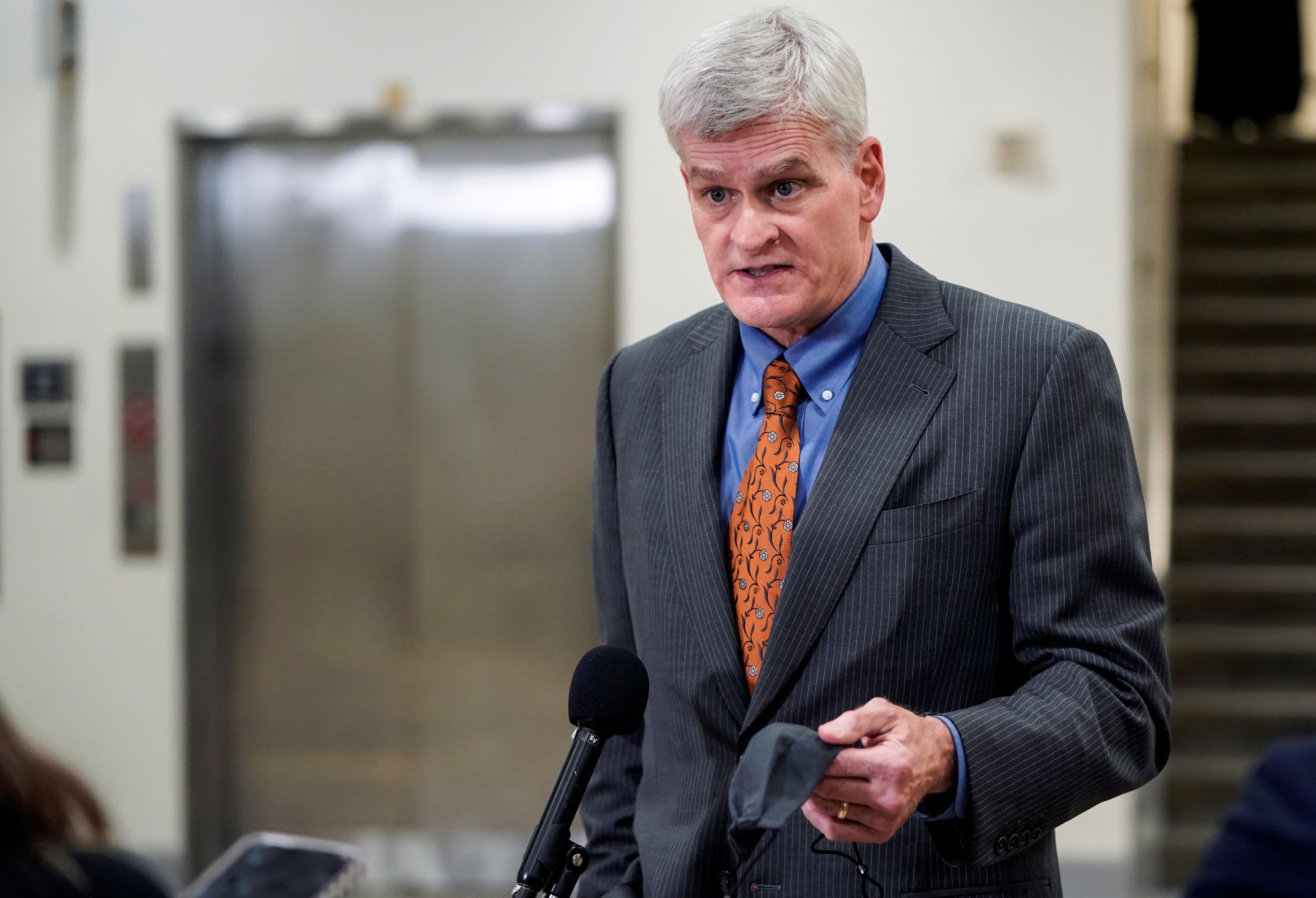
The seven Republican senators who joined all 50 Democrats in voting to convict former President Donald Trump of inciting the Jan. 6 riot in the Capitol are now facing heat from conservatives in their home states.
Party leaders and local GOP officials, many seeking to curry favor with the broad swath of conservative voters still loyal to Trump, have condemned the 7 lawmakers for breaking ranks with the rest of the party.
The critiques illustrate the strong hold that Trump continues to have over Republicans nationally in spite of his November loss and his subsequent refusal to concede defeat.
Polling conducted after the attack on Congress last month continues to show Trump holds a sky-high approval rating among Republicans, and that about half of the GOP is primarily loyal to the ex-president himself, rather than the party.
The Senate ultimately acquitted Trump on Saturday in a 57-43 vote after an unprecedented second impeachment trial.
While Sen. Mitt Romney, R-Utah, was the lone member of the GOP to vote against Trump after his first trial, he was joined this time by six others: Richard Burr of North Carolina, Bill Cassidy of Louisiana, Susan Collins of Maine, Lisa Murkowski of Alaska, Ben Sasse of Nebraska, and Pat Toomey of Pennsylvania.
Some of the senators, including Cassidy, have already been hit with official rebukes from their state party, while many of the others are facing a chorus of criticism from local conservatives. Cassidy was censured by the Louisiana GOP just hours after his vote.
The backlash against Sasse, who is expected to also face a formal censure, was mentioned directly by one of Trump’s defense attorneys from the Senate floor.
“There seem to be some pretty smart jurists in Nebraska, and I can’t believe the United States senator doesn’t know that,” Bruce Castor Jr. said during an at-times confounding address. Castor said Sasse “faces a whirlwind even though he knows what the judiciary in his state thinks.”
Because of prior comments critical of Trump, local GOP chapters in several Nebraska counties have passed resolutions calling for Sasse’s censure, according to the Lincoln Journal Star. A meeting of the state GOP to formally censure the senator was postponed because of weather, the paper reported.
Burr, a senior Republican whose vote to convict Trump came as a surprise to most observers, also drew fire from home state conservatives.
“North Carolina Republicans sent Senator Burr to the United States Senate to uphold the Constitution and his vote today to convict in a trial that he declared unconstitutional is shocking and disappointing,” the state Republican Party chairman, Michael Whatley, said in a statement.
Burr is not seeking re-election to a fourth term in the Senate. Mark Walker, a Republican seeking to succeed him in 2022, wrote in a post on Twitter shortly after Saturday’s vote: “Wrong vote, Sen. Burr,” appending a fundraising message.
According to The Philadelphia Inquirer, Toomey may also face “possible backlash at home to come.” The newspaper reported that Lawrence Tabas, the state’s GOP chairman, said in response to Toomey’s vote that he shared a “disappointment of many of our grassroots leaders and volunteers.”
On the whole, it’s unlikely that the backlash will inflict electoral damage in the near-term. Six of the seven Republicans will not be facing re-election next year, in the 2022 cycle. Only Murkowski, who has served in the Senate since 2002, faces an imminent reelection battle.
Some have speculated that the Alaskan’s impeachment vote may provide an impetus for former Gov. Sarah Palin to enter the race in a primary. Palin herself has stoked rumors she’d enter the race.
Each of the seven Republicans who voted to convict Trump has defended their decision to do so, in statements and in posts on social media. In a video posted online ahead of the vote, Sasse repeated his warnings about Republican loyalty to Trump and said that “politics is not about the weird worship of one dude.”
Toomey, in a thread of posts on Twitter, acknowledged that Trump’s attorneys “made several accurate observations” during their arguments. But, he said, “As a result of President Trump’s actions, for the first time in American history, the transfer of presidential power was not peaceful.”
“His betrayal of the Constitution and his oath of office required conviction,” Toomey wrote, defending his decision.
Cassidy, in an interview on ABC News on Sunday, said that he was “attempting to hold President Trump accountable” and that Cassidy was “very confident that as time passes people will move to that position.”
“The Republican Party is more than just one person. The Republican Party is about ideas,” he said.
CNBC has reached out to each of the seven Republican lawmakers.
The criticism of the senators echoes earlier attacks on the House Republicans who voted in favor of Trump’s impeachment in the lower chamber. Rep. Liz Cheney of Wyoming was censured by Republicans in her state after her colleagues in the House pushed, unsuccessfully, to strip her of her leadership role.
Some Republicans who did not even vote for Trump’s impeachment have been criticized for not being deferential enough to the ex-president. Senate Minority Leader Mitch McConnell, R-Ky., for instance, voted to acquit but still delivered a sharp criticism of Trump’s Jan. 6 rally speech, accusing him of being responsible for the day’s violence.
Sen. Lindsey Graham, R-S.C., excoriated McConnell on Sunday for the address.
“I think Sen. McConnell’s speech, he got a load off his chest, obviously, but unfortunately he put a load on the back of Republicans,” Graham said on Fox News. “That speech you will see in 2022 campaigns.”
Subscribe to CNBC Pro for the TV livestream, deep insights and analysis on how to invest during the next presidential term.




